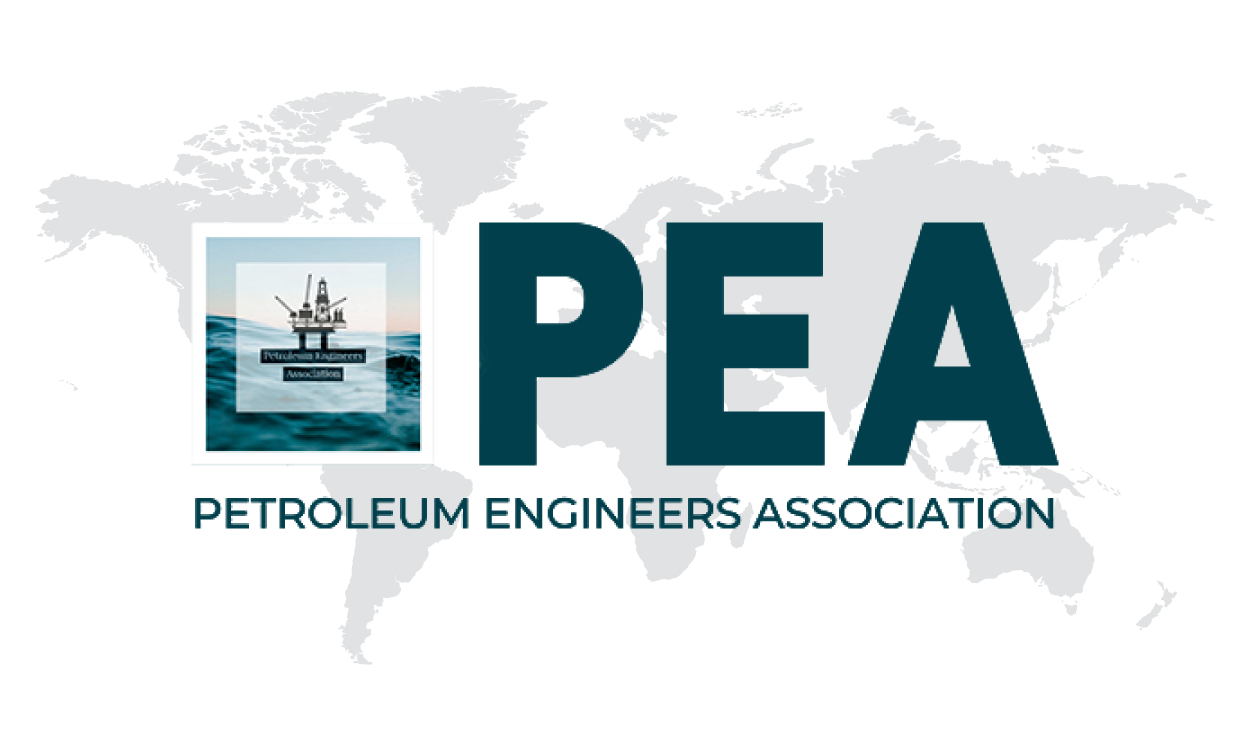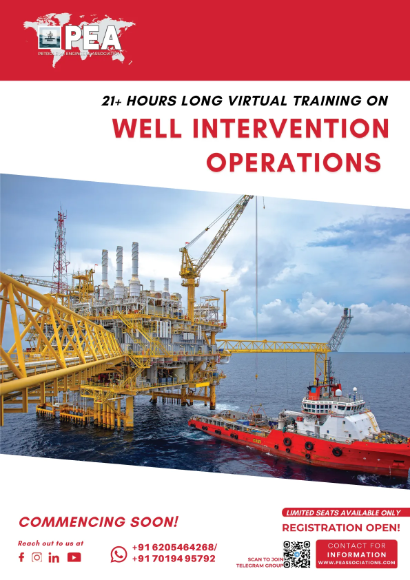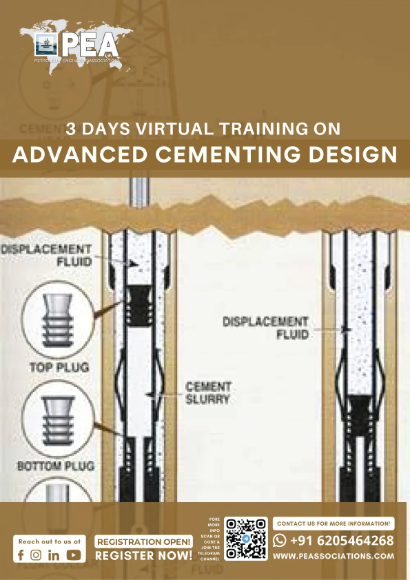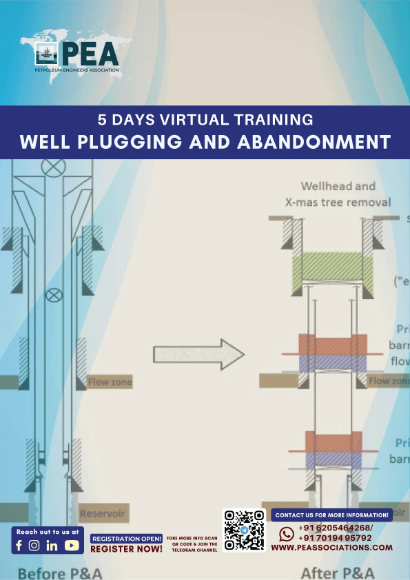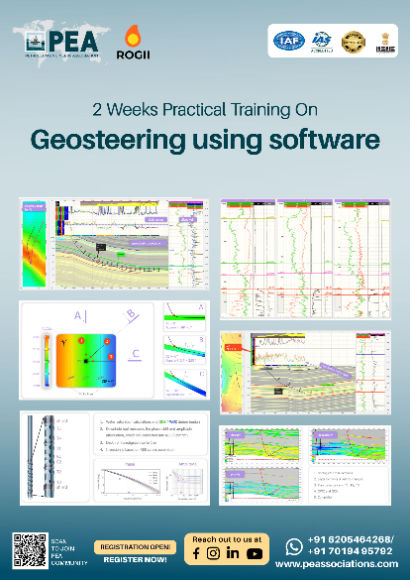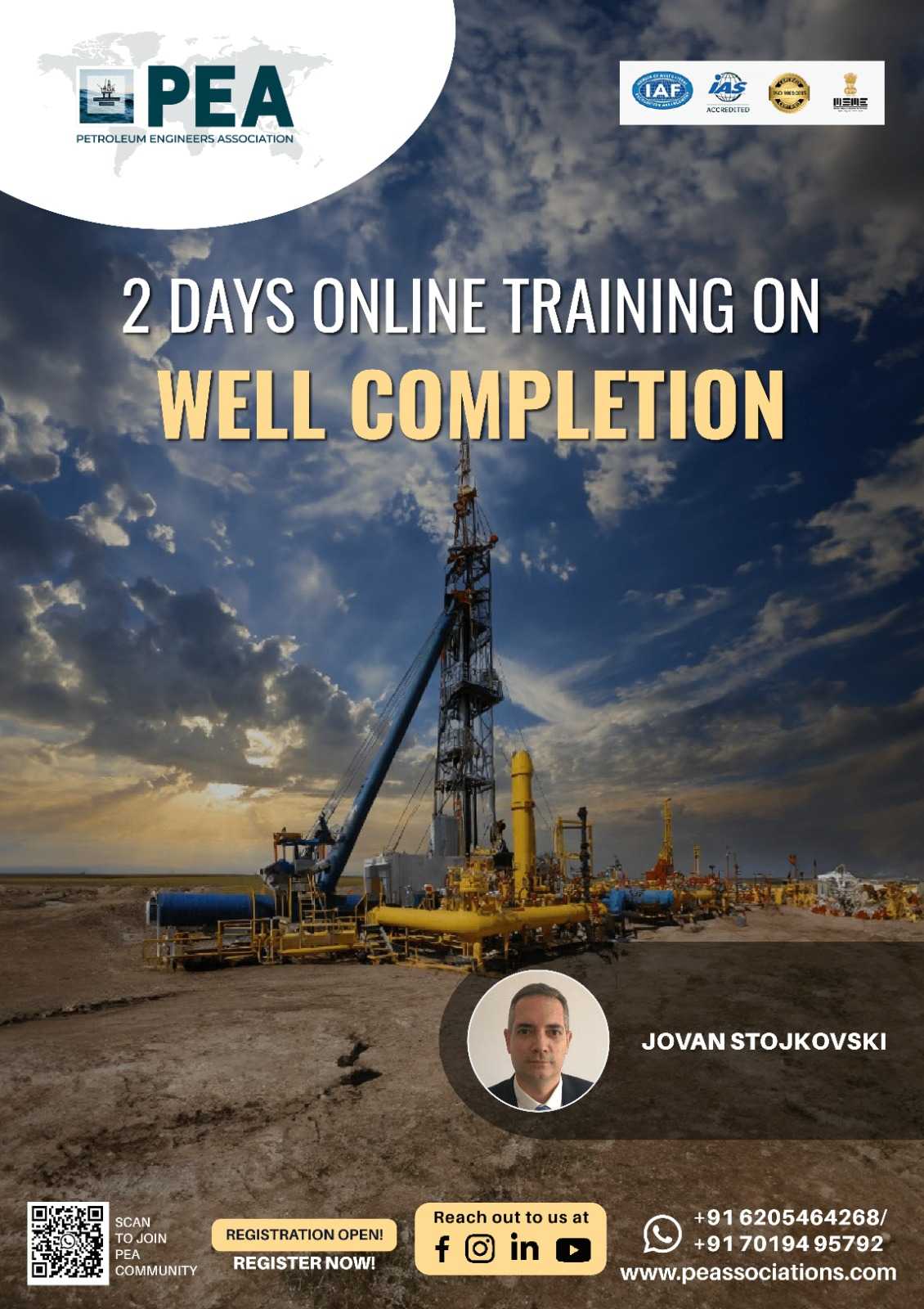Directional Well Planning & Anti-Collision Analysis for Energy Professionals
Have Questions ?
Directional Well Planning & Anti-Collision Analysis for Energy Professionals - DWP25
| Code | Date | Time | Duration | Location | Currency | Team of 10 Per Person | Team of 7 Per Person | Early Bird Fee Per Person | Normal Fee Per Person |
|---|---|---|---|---|---|---|---|---|---|
| DWP25 | 14 - 25 Sep 2026 | 9 PM Indian Time |
3 Hours Per Day
|
Zoom Online
|
USD
|
2200
|
2500
|
3000
|
3500
|
The classes will be via zoom for 2 weeks (Except Sat & Sun) with 3 hours per day.
Boost your team's skills and your budget! Enjoy group discounts for collaborative learning. Send an inquiry to info@peassociations.com.
Directional Well Planning & Anti-Collision Analysis for Energy Professionals
This course equips energy professionals with the knowledge and tools to plan directional wells effectively while managing collision risks in multi-well environments. It combines engineering principles, industry standards, and practical tools to enhance safe and optimized wellbore placement.
Description
Directional drilling is at the heart of modern well construction, especially in complex fields and high-density developments. This course offers a detailed exploration of directional well planning and anti-collision analysis, focusing on practical application using industry-proven methods and software tools.
Demo Class
With increased drilling complexity and the rise of multi-well pads, effective directional well planning and collision avoidance have become critical. Energy professionals must ensure safe drilling operations while maximizing resource recovery. This course is designed to bridge the gap between theory and field application, giving participants a solid foundation in trajectory planning, wellbore positioning, and collision risk mitigation techniques.
By the end of this course, participants will be able to:
-
Understand the fundamentals of directional drilling and well trajectory design
-
Interpret survey data and apply directional drilling calculations
-
Plan directional wells aligned with geological and operational objectives
-
Perform anti-collision analysis and manage separation factors
-
Use industry standards (e.g., ISCWSA) and software for well planning
-
Mitigate collision risks in high-density and complex drilling environments
This course will be delivered through interactive online sessions, blending theory with hands-on exercises. It includes:
-
Instructor-led presentations
-
Real-world case studies and field examples
-
Software demonstrations and guided calculations
-
Group discussions and Q&A sessions
-
Practical assignments to reinforce learning
Organizations that invest in this training can expect to:
-
Enhance safety and reduce the risk of costly well collisions
-
Improve planning efficiency and operational decision-making
-
Optimize wellbore placement for better reservoir contact
-
Support multi-disciplinary collaboration between drilling, geology, and reservoir teams
-
Increase confidence in executing complex well plans
Participants will gain:
-
Practical skills in directional well design and trajectory analysis
-
Confidence in handling real-life directional drilling challenges
-
Ability to perform anti-collision assessments
-
A solid understanding of industry standards and practices
-
Enhanced career prospects in drilling, well engineering, and subsurface disciplines
This course is ideal for:
-
Drilling Engineers
-
Well Planning Engineers
-
Directional Drillers
-
Subsurface Engineers and Geologists
-
Operations and Asset Managers
-
Technical professionals involved in well design and execution
Module 1
Basic Concepts of Directional Well Planning
Workflow for Directional Well Planning
Critical Requirements for Positional Data
QA and QC of Directional & Positional Data
Azimuthal Corrections, Sag Correction, and Mag. Spacing
Profiles of Directional Wells
Concepts of Directional Wellbore Quality
Introduction to Well Planning Software
Introduction to Well Engineering Software Module
Evaluating Trajectory for Drilling Feasibility Using Well Eng.
Positional Uncertainty and Target Sizing
Survey Programming
Wellbore Stability (WBS) Considerations
Considerations for ERD Well Directional Planning
Analysis of Trajectory Drillability (Ease of Drilling)
Selection of Directional Drilling Technology
Anti-Collision Concepts
Best Practices for Top Hole Anti-Collision in Multiwell Pad
Module 2
Anti-Collision Monitoring During Drilling
Replanning Wells While Drilling
Designs and Trajectory Optimization for Multi-Well Pads
Relief Well Planning and Best Practices
Optimization of Sidetrack Well Planning
Reducing Contact Forces (Casing Wear) by Optimizing
Trajectory Kickoff
High-Level Costing of Various Well Trajectories
Field-Based Directional Well Planning and Target Assignments
Horizontal Well Planning and Trajectory Optimization
Complex Well Planning (Multilaterals, Unconventional, Short Radius Hz Wells)
Drillability Analysis for Well Engineering: Ensuring Suitability
for Drilling Ops
Selection and Optimization of Surface Locations (Well Pad Locations)
Directional Digital Dashboards and Digital Analysis Tools for
Directional Performance Monitoring
On successful completion of this training course, PEA Certificate & Certificate from Oxford Well Engineering UK London will be awarded to the delegates.
Naim Saddiq, MSc Petroleum Eng. (USA), is a UK Chartered Engineer and a globally recognized figure in modern drilling. With 22+ years of US and UK offshore/onshore experience, he leads Oxford Well Engineering Ltd. in London. An expert in directional well planning, Naim also lectures at the University of Leoben, Austria, and has guest lectured at the University of Houston. He brings extensive practical experience and passion to his training.
Frequently Asked Questions
All course bookings made through PEA are strictly non-refundable. By registering for a course, you acknowledge and accept that all fees are payable in full and are not subject to refund under any circumstances, including changes in personal or professional commitments or partial attendance.
PEA reserves the right to make reasonable adjustments to course content, trainers, or schedules where necessary, without entitling delegates to a refund. Comprehensive details of each course — including objectives, target audience, and content — are clearly outlined before enrolment, and it is the responsibility of the delegate to ensure the course's suitability prior to booking.
For any inquiries related to cancellations or bookings, please contact our support team, who will be happy to assist you.
